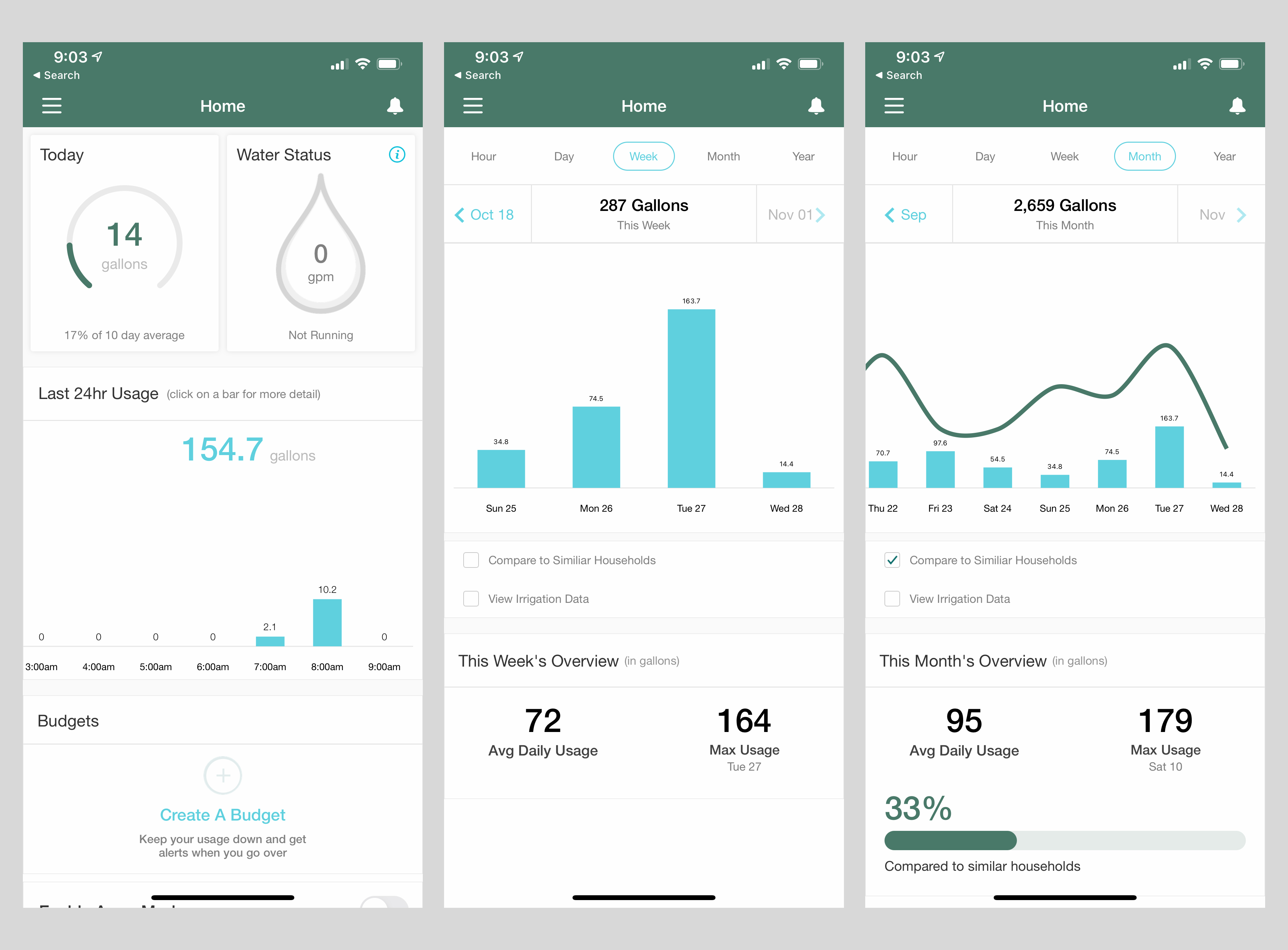Many smart home gadgets focus on convenience or automation of typically manual tasks, but Flume’s smart water sensor provides a potentially much more vital service: The ability to track how much water you’re consuming, and alert you to potential leaks in you home’s plumbing. The company just released its second-generation Flume Smart Home Water Monitor ($199), and the device is easier to set up and use, and smarter, than ever.
The basics
Flume’s Smart Home Water Monitor consists of a device you affix to your water meter, and a gateway that connects it to your home Wi-Fi network. Installation is super simple and requires no plumbing or any kind of home DIY expertise. The Flume app guides you through installation, and in most cases you should be up and running in less than 10 minutes — plus Flume has live assistance available via chat through the app in case you get stuck.
The Flume monitor provides up-to-date information about your whole home’s water usage, including any consumption from interior or exterior faucets, plumbing and fixtures. It can alert you when it detects suspected leaks based on water behavior, and help you budget your water use if you’re looking to save on your utility bill, or just conserve more water through more efficient usage.
Design and features
The Flume meter is a very impressive example of technology designed for use by just about anyone, anywhere. It doesn’t have its own display or interface, and instead works entirely through the app, but that simplicity is part of its genius. The water monitor itself is encased in a simple gray plastic box, which you attach to your water meter externally using the included rubber straps. All it needs is to be placed on the side of where your meter’s readout is located, and then it’s activated by you simply running water through your system by turning on a faucet. It’s reading the magnetic field generated by your water meter, which the company says can detect any water usage all the way down to one one-hundredth of a gallon — i.e. a slowly dripping faucet.

Image Credits: Darrell Etherington
The meter is powered by four AA batteries that come pre-installed, and you can see the battery status in the app, but those should last a very long time. The meter talks to a Flume bridge, which does need to be connected to power but can be set up pretty much anywhere within Wi-Fi range in your home. The final component is the app, which is available for iOS and Android, and which provides a dashboard visualizing your usage, as well as push notifications you can set up for when the Flume system detects a leak.
In practice, set up is a breeze, and it’s truly amazing how much detail and information Flume can provide, given how easy it is to install and use. The data itself is also incredibly fascinating, and truly resulted in my being more aware about my general water consumption, how it affects my monthly utility bills and how I might be able to conserve water going forward. My home didn’t have a dishwasher when I originally installed the Flume 2, for instance, and I realized how much more water I was using hand-washing dishes versus putting in a small, water-efficient 18-inch dishwasher instead — which was proven out by the Flume data.
Bottom line
You might not realize you need a smart home water sensor, but Flume 2 makes a strong case for everyone investing in one. The simple, practical design and user-friendly app instantly make you a much more informed consumer of water, and can save you a bundle in the long run by detecting leaks early and preventing any more serious and damaging flooding incidents. It also just feels good to be aware of what you’re using, and being able to translate that into direct action to save a little water here and there, for the good of the environment and your monthly spending.

Recent Comments